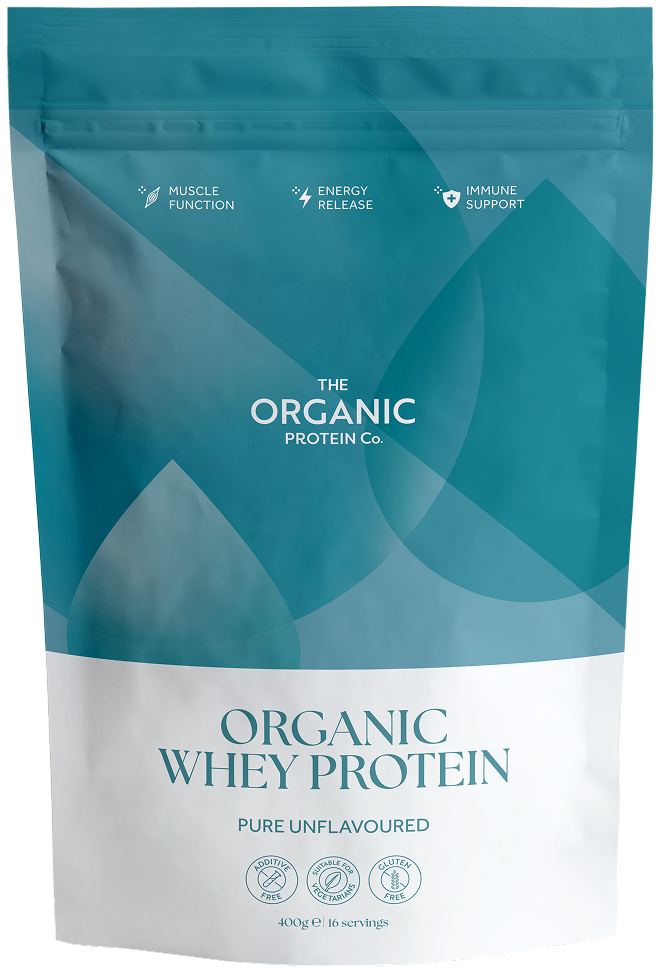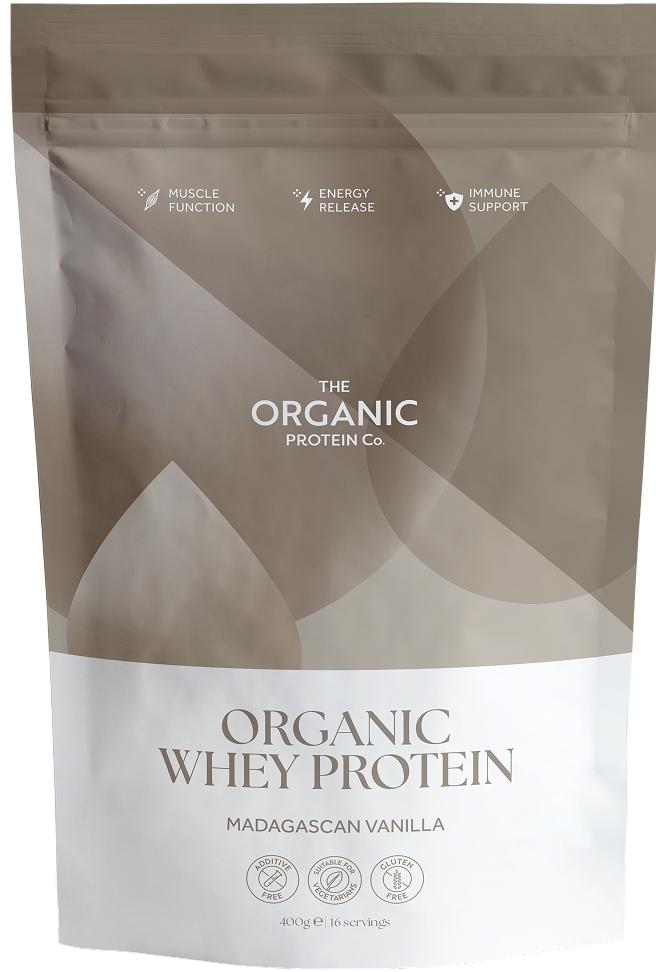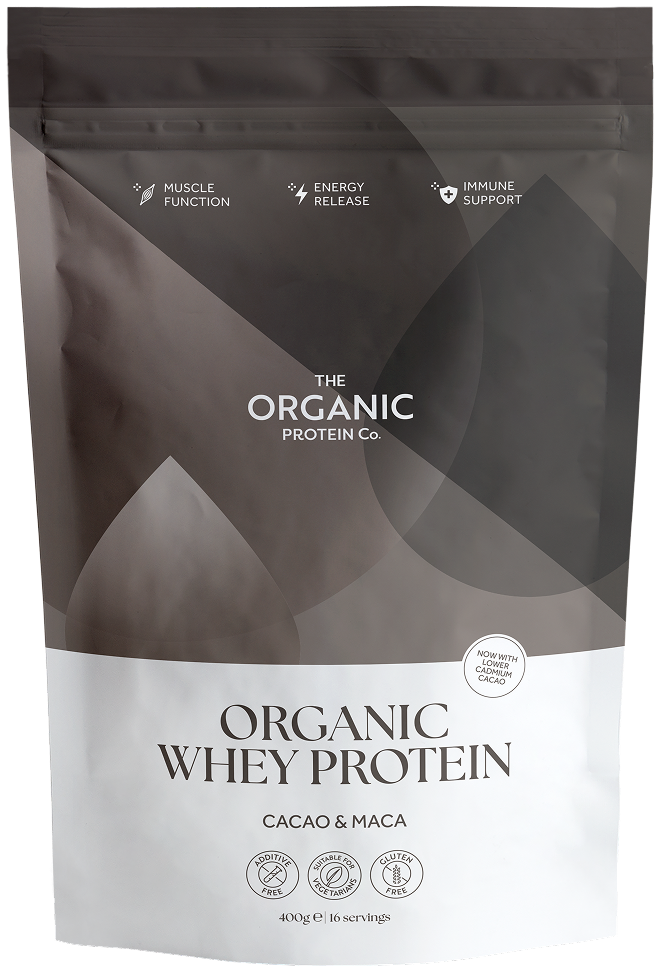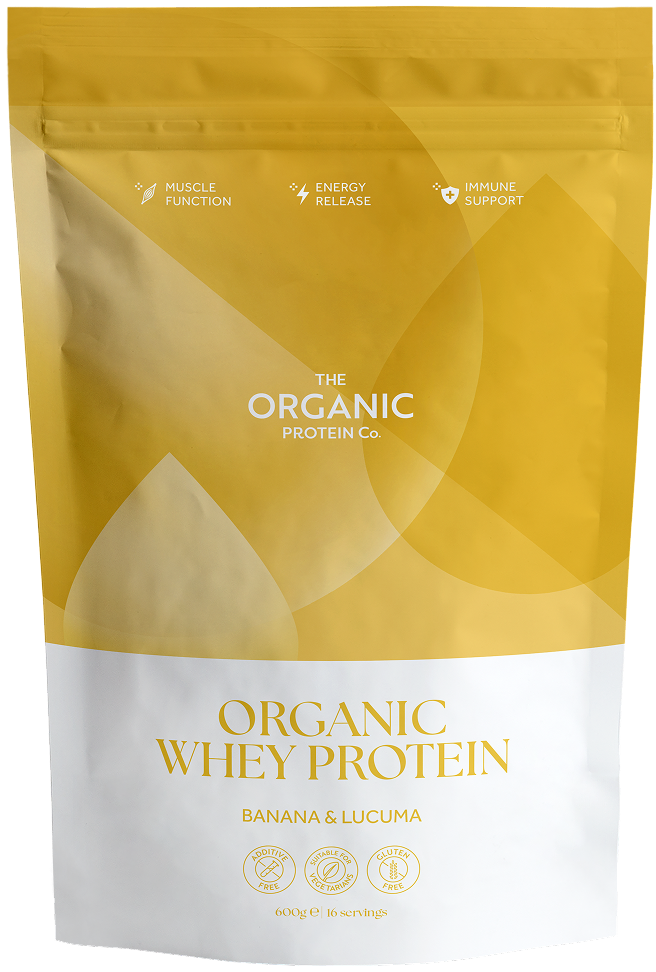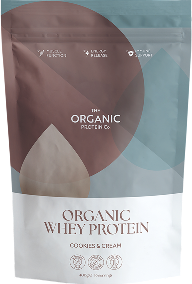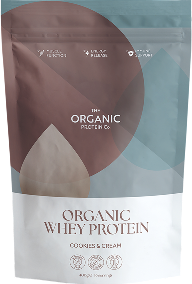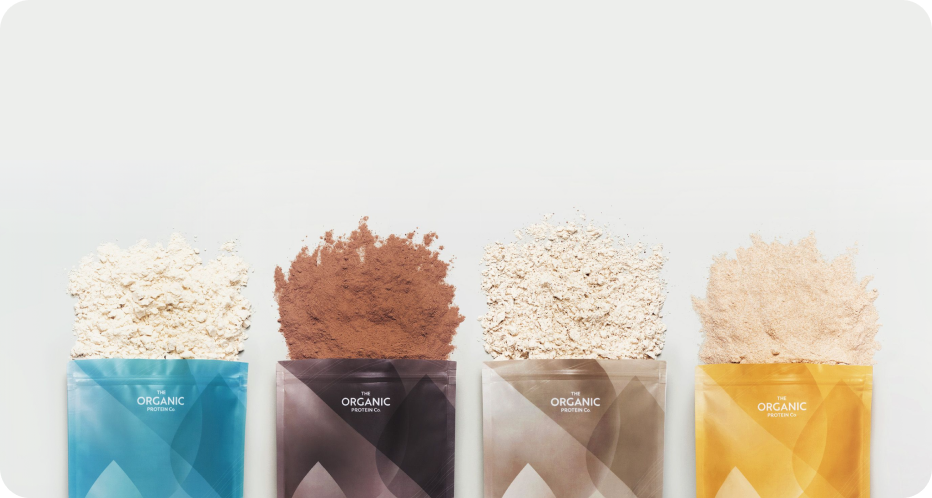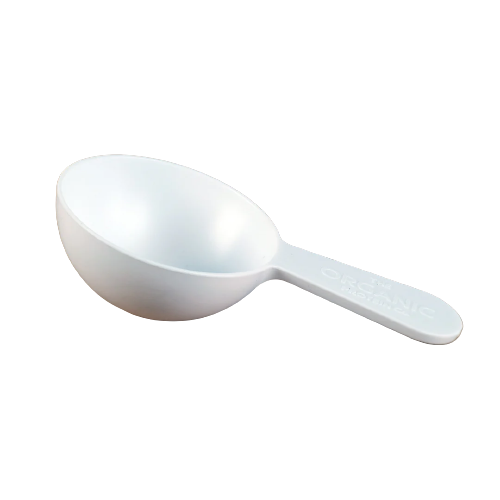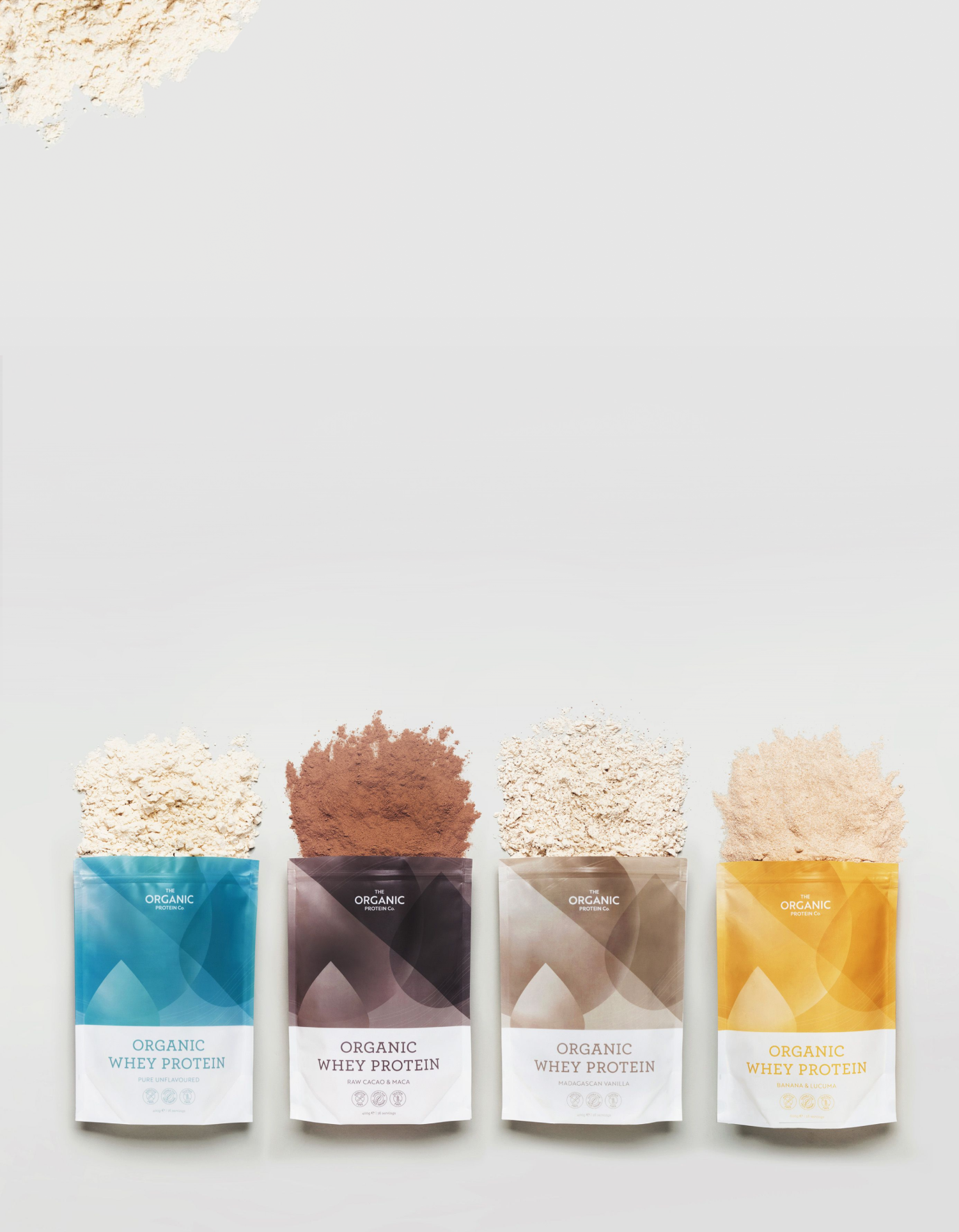Recovering from surgery takes time, and the right nutrition can make all the difference. Alongside a balanced diet based mainly on whole foods, and guided by the recommendations of your doctor, protein powders like whey protein can support wound healing, muscle health, and overall recovery.
In this guide, we’ll explore why whey protein - a high-quality, easily digestible source of all your essential amino acids - is a smart choice after surgery and why choosing an organic protein powder can help you get back to feeling your very best.
Why protein is a key nutrient for post-surgery recovery
Surgery places stress on the body, triggering a complex healing process that requires extra nutrients – particularly protein. ( 1 ) This is because, during recovery, the body diverts energy and resources toward tissue repair, immune function, and cell regeneration – all of which rely on a sufficient protein supply.
Without it, healing can take longer, and muscle loss can become a concern, especially during periods of reduced activity. ( 2 )
Protein’s role in tissue repair and wound healing
Protein provides the essential amino acids needed to form collagen, a structural protein crucial for the wound-healing process and tissue regeneration. ( 3 , 4 ) It also helps produce immune cells, which defend against infections and support faster healing. ( 5 )
In fact, research shows that sufficient protein intake is linked to better surgical outcomes, reduced risk of complications, and improved strength during recovery. ( 6 )
Preventing muscle loss during inactivity
Post-surgery rest is necessary, but it often leads to muscle atrophy (loss of muscle mass) due to inactivity. ( 7 ) High-quality protein sources, such as lean meats, fish, legumes, or whey protein, help to preserve your muscle tissue, ensuring you maintain strength as your body recovers.
This is particularly important for older adults or those recovering from major procedures, as muscle loss can significantly impact mobility and overall wellbeing. ( 8 )
Summary: why surgery patients often need more protein
Surgery patients may require higher-than-usual protein intake due to:
- Oxidative stress and inflammation: Surgery increases oxidative stress, which can impair healing. Protein helps combat this by supporting cellular repair. ( 9 , 10 )
- Increased metabolic demands: The body works harder during recovery, meaning more protein is required to meet energy needs. ( 11 )
- Reduced appetite: Post-surgical recovery can lead to low appetite or difficulty eating, making nutrient-dense protein sources a convenient option. ( 12 )
- Inactivity: As patients, particularly those in later life, rest from their surgery, the muscles can begin to weaken and diminish due to inactivity and lack of use. ( 7 )

Protein needs for different types of surgeries
Different types of surgery place unique demands on the body, and protein plays a key role in every stage of recovery. Some examples include:
- Bariatric surgery: Weight-loss surgeries, such as gastric bypass or sleeve gastrectomy, reduce stomach size and appetite, putting even more importance on eating the right nutrients. In these cases, protein can help prevent muscle loss and also supports healthy weight management post-surgery. ( 13 , 14 )
- Orthopaedic surgery: Protein is essential for bone and cartilage repair, helping to rebuild strength in joints. ( 15 ) Post-surgical immobility increases the risk of muscle atrophy making protein intake crucial for preserving lean muscle mass.
- General surgery: After undergoing other surgeries like abdominal surgery, c-sections, or hernia repair, protein supports wound healing and tissue regeneration, speeding up recovery times and also strengthening immunity.
How can whey protein support wound healing?
Widely regarded as a high-quality protein source, whey protein can be supplemented alongside whole foods to easily and conveniently boost your protein intake for wound healing. There are several reasons why it’s often singled out as particularly beneficial for post-surgery recovery:
1. Fast absorption
One of the main reasons whey protein is often recommended for wound healing and surgery recovery is because it’s one of the fastest-digesting protein sources available. ( 16 )
Unlike other protein sources that take longer to break down, whey is highly bioavailable and is easily digested and absorbed into the bloodstream. This quickly delivers the essential amino acids to the muscles and tissues that need repair.
2. Complete essential amino acid profile
Protein quality matters during recovery, and whey protein – like many other animal protein sources – is a complete protein. This means it contains all nine essential amino acids required for tissue regeneration and wound healing. ( 17 )
These amino acids are referred to as ‘essential’ because you can only get them from your diet. Your body can’t naturally make them.
One of these amino acids, leucine, plays a particularly important role in muscle recovery, as it helps stimulate muscle protein synthesis (MPS). This is the process responsible for repairing and rebuilding muscle tissue. ( 18 )
3. Immune-supporting compounds
Beyond its role in supporting muscle health, whey protein also contains bioactive compounds that support immune function – a key factor in post-surgery recovery.
Since surgery temporarily weakens the immune system, these compounds provide an extra layer of support to help the body fight off infections and heal efficiently. These include:

Scientific evidence supporting whey protein for post-surgery recovery
There have been studies specifically into the benefits of whey protein supplementation for wound recovery and post-surgical healing. Some of these are animal studies, so while the research suggests benefits, more definitive evidence is needed on the role whey protein can play in wound healing for humans.
For example, a study in rats showed that whey protein may be able to enhance the body's natural healing response by increasing glutathione levels, a powerful antioxidant that helps combat oxidative stress. ( 21 )
Another study, conducted on diabetic rats, found that whey protein supplementation restored normal inflammatory responses and reduced oxidative stress, helping to speed up wound healing. ( 22 )
One study in humans – research into fast-track recovery surgery – did find that pre-surgical whey protein supplementation led to shorter hospital stays, better muscle preservation, and improved overall recovery. ( 23 )
When is the best time to take whey protein for wound healing?
Recovering from surgery is all about giving your body what it needs to heal well, and protein plays a big part in that.
The most beneficial time to up your protein intake can vary depending on the type of surgery and your individual circumstances, so it’s best to speak with your doctor first and foremost.
Here is some general guidance on the timing of protein intake for wound recovery and healing.
Before surgery
- Laying the groundwork for recovery: Surgery can put a strain on your body, often leading to muscle loss due to reduced movement. Getting enough protein prior to surgery helps maintain muscle mass so your body is in the best shape to recover. ( 24 )
After surgery
-
Repairing tissues: Your body works hard to repair tissue after surgery. Whey protein is packed with amino acids like leucine and proline, which help form new skin and support collagen production. ( 25 )
-
Maintaining muscle health: When you’re not moving as much, muscle breakdown can happen more quickly. Whey protein helps keep muscle tissue intact so you stay stronger throughout recovery.
- Supporting immune function: Surgery can put extra stress on your immune system, so upping your protein intake after surgery – especially with whey protein – can help your body fight off infections. ( 1 )
How much protein do you need after surgery?
As we’ve seen, your protein needs go up after surgery. While the best recommendation is one that’s personal to you, based on the advice of your doctor, experts suggest aiming for at least 1.6 kg a day, increasing up to 2 to 3 kg a day if possible, with a particular emphasis on the essential amino acid leucine. ( 26 ) However, this depends on factors like age, activity levels, and the type of surgery.

Simple ways to add more protein into your diet post-surgery
Getting enough protein after surgery can be challenging, especially if your appetite is reduced or you're on a restricted diet. The good news? Whey protein can be incorporated into meals and snacks in a way that’s easy to digest and gentle on your body.
First, base your diet around whole foods
Before turning to supplements like whey protein, it’s essential to build your recovery diet around nutrient-dense whole foods first. Whole foods provide a wide range of essential vitamins, minerals, and fibre that work together to support the body’s healing process.
Some high-protein whole foods to prioritise post-surgery include:
- Lean meats and poultry
- Eggs
- Fish
- Nuts and seeds
- Dairy products, such as Greek yoghurt and cottage cheese
- Plant-based proteins such as lentils, chickpeas, quinoa, or tofu
Protein shakes for quick, convenient nutrition
Beyond whole foods, a simple protein shake is one of the easiest ways to increase your protein intake without much effort. Blend whey protein with water (lighter), milk (more filling and higher protein) , or a dairy-free alternative for a smooth, high-protein drink.
Mix into soft foods
If you’re on a soft or liquid diet post-surgery, protein powders can easily be added to:
Small, frequent meals to support recovery
Many surgery patients find it difficult to eat large meals. Instead, spreading protein intake throughout the day with smaller, protein-rich portions can help meet your needs without discomfort.

Browse our whey protein recipes
We’ve thought up some delicious, nutritious whey protein recipes which you can try to up your protein intake after surgery. From simple, savoury salad dressings and sandwiches to high-protein bliss balls and sweet treats, there’s something for every taste and preference.
How to choose the best whey protein powder for surgery recovery
When recovering from surgery, it’s important to choose a high-quality protein powder that supports your healing alongside a primarily whole food diet.
Here’s what to look for when selecting a whey protein for post-surgery recovery:
1. Organic whey protein
Ideally, choose a pure, organic whey protein powder that’s free from artificial additives and sweeteners. Organic whey comes from primarily grass-fed cows and is produced without synthetic hormones, antibiotics, or pesticides.
2. Easily digestible for faster absorption
After surgery, your digestive system may be more sensitive. By choosing a protein powder which is more readily digested and absorbed by your body – such as whey protein – you can get all the essential amino acids you need with less stress on your digestion.
3. No added sugars or artificial ingredients
Many commercial protein powders contain added sugars, sweeteners, and artificial ingredients that can contribute to inflammation and digestive discomfort. ( 27 ) For post-surgical healing, look for a natural, unflavoured, or lightly, naturally sweetened option with minimal ingredients.

Protein: a vital nutrient for post-surgery recovery
Recovering from surgery requires the right nutrition, and protein – especially whey protein – is one of the best tools to support healing. With its complete amino acid profile, fast absorption, and muscle-preserving benefits, whey protein helps repair tissue, reduce muscle loss, and strengthen the immune system – all essential for a smooth recovery.
For those undergoing surgery or supporting a loved one through recovery, prioritising natural, nutrient-rich protein sources can make a real difference in the healing process. Consulting a healthcare professional to determine the right amount of protein for your individual recovery needs is always recommended.

